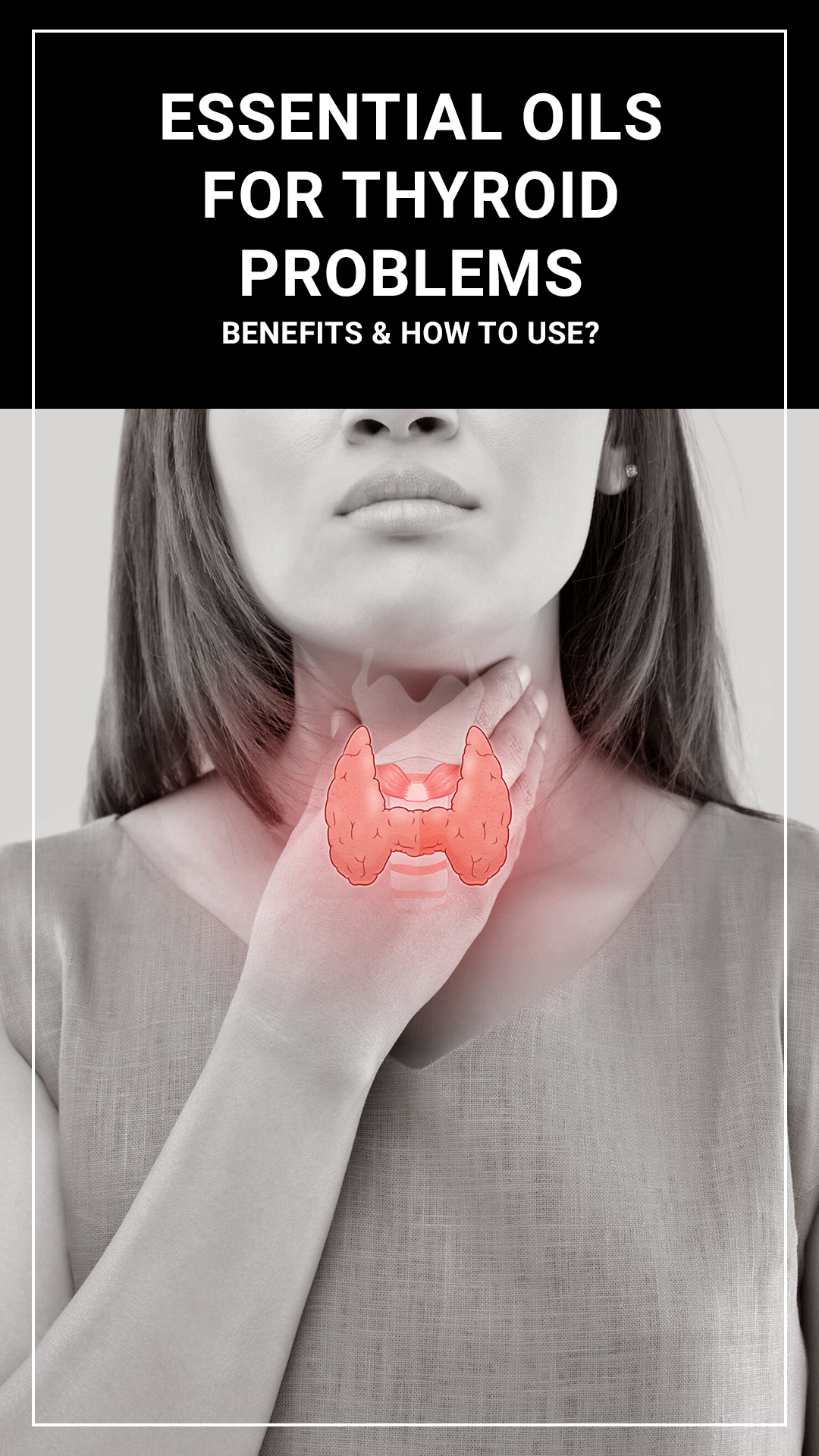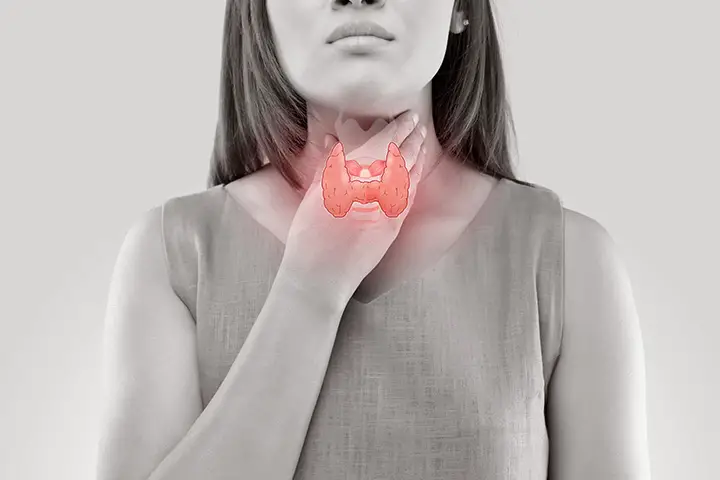
Important: This article is for informational purposes only. Please read our full disclaimer for more details.
Nowadays, thyroid issues are becoming quite the norm. Blame it on your lifestyle or genetic background, these cases are definitely on the rise. The thyroid gland is a butterfly-shaped gland at the base of your neck. Any change in its size or function results in hormonal imbalance and other complications. If you want to treat an existing thyroid problem or simply prevent its occurrence, here are 8 best essential oils for thyroid that will help you in your quest.
Best Essential Oils For Your Thyroid Problems
1. Rosemary oil
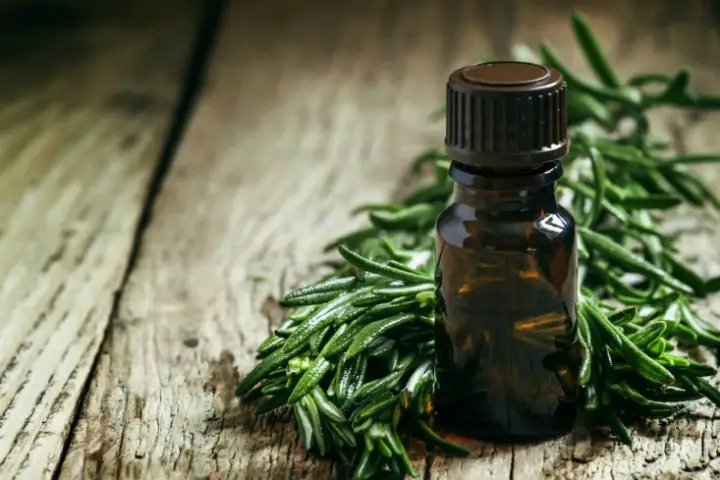
The powerful anti-inflammatory properties of rosemary oil can help reduce inflammation and stimulate your thyroid gland. Thyroid problems often lead to fatigue and thinning hair, and rosemary oil can help solve this by boosting your energy and stimulating hair growth. This essential oil is best for treating hypothyroidism.
You’ll need:
- 6 drops of rosemary oil
- 15 mL of coconut oil (any carrier oil)
Process:
- Add six drops of rosemary oil to 15 mL of any carrier oil.
- Mix well and rub it onto your scalp, stomach, and behind your feet.
- You must do this on a daily basis.
[ Recommended: Best Yoga Poses to Control Thyroid ]
2. Myrrh oil
Myrrh oil, like clove oil, is used to stimulate the thyroid gland and is thus quite effective in treating hypothyroidism. The sweet and spicy fragrance of the oil helps in promoting sleep and calmness. This can help combat symptoms of stress, anxiety, and depression.
You’ll need:
- 6 drops of myrrh oil
- 15 mL of coconut oil
Process:
- Add six drops of myrrh oil to 15 mL of coconut oil and mix well.
- Rub this mixture on your stomach, behind your neck, and on the soles of your feet.
- You can also put three drops of myrrh oil in a diffuser and inhale its aroma.
- Do this on a daily basis.
3. Lemongrass oil
Lemongrass oil can treat hyperthyroidism. Like most essential oils, it possesses anti-inflammatory properties that help reduce inflammation. Its pleasant aroma can help relieve symptoms like stress and anxiety.
You’ll need:
- 3-6 drops of lemongrass oil
- 15 mL of coconut oil (or any other carrier oil)
Process:
- Add a few drops of lemongrass oil to a diffuser and inhale its pleasant aroma.
- Alternatively, you can also mix six drops of lemongrass oil with 15 mL of coconut oil and
- Apply this mixture gently to your temples, stomach, and behind your feet.
- You must do this on a daily basis.
[ Recommended: How To Treat Thyroid Naturally ]
4. Peppermint oil
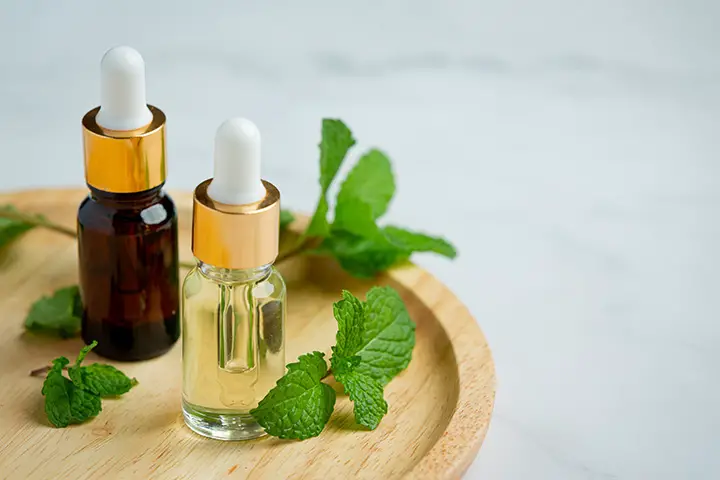
The presence of menthol imparts beneficial anti-inflammatory and anti-stress properties to peppermint oil, which can help treat hypothyroidism.
You’ll need:
- 10 drops of peppermint oil
- Bathwater
Process:
- Add 10 drops of peppermint oil to your bathwater and soak in it for 15 to 20 minutes.
- You can also mix six drops of peppermint oil with some carrier oil and rub it on your stomach and behind your feet.
- You must do this once daily.
5. Sandalwood oil
As you know, thyroid problems are often associated with stress, anxiety, and insomnia. This is where sandalwood oil can be especially helpful. Its pleasant aroma can help reduce stress and anxiety, thus helping you remain calm and sleep better.
You’ll need:
- 3-6 drops of sandalwood oil
- 15 mL of any carrier oil (coconut or olive oil)
Process:
- Add three drops of sandalwood oil to a diffuser and inhale its fragrant aroma.
- You can also mix six drops of sandalwood oil with 15 mL of any carrier oil and rub it on the base of your neck, stomach, and behind your feet for relaxing effects.
- You must do this on a daily basis.
6. Frankincense oil
A drop or sudden increase in the level of thyroid hormones can lead to inflammation. Frankincense oil helps to reduce the inflammation in your body and gut with its anti-inflammatory properties. This, in turn, helps restore your hormonal balance. This essential oil is equally effective for hyper and hypothyroidism.
You’ll need:
- 2-3 drops of frankincense oil
- 10 drops of coconut oil
Process:
- Mix a few drops of frankincense oil with coconut oil.
- Gently massage this mixture on your stomach, behind your neck, and on the soles of your feet.
- You can also add a drop of food-grade frankincense oil to a glass of water and consume it daily.
- You must do this 1 to 2 times daily.
7. Clove oil
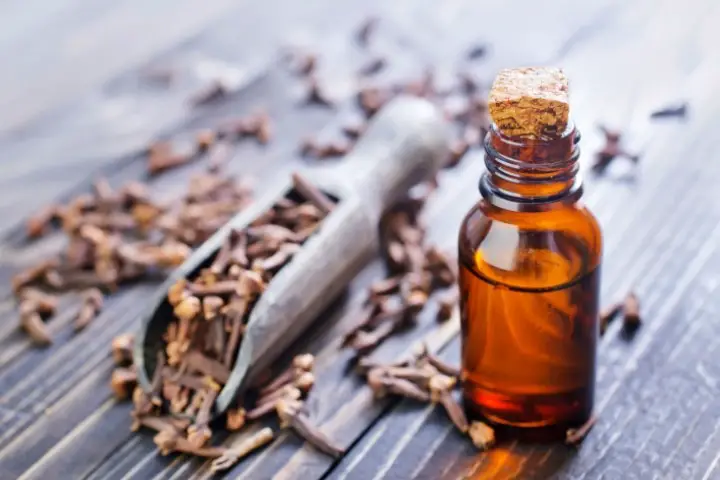
Clove oil can help regulate your thyroid hormones and their functions and is especially helpful in the treatment of hypothyroidism. The eugenol in clove oil is responsible for its pleasing odor, which can help relieve stress and anxiety.
You’ll need:
- 6 drops of clove oil
- 15 mL of any carrier oil (coconut or olive oil)
Process:
- Add six drops of clove oil to 15 mL of any carrier oil.
- Rub this mixture on your stomach, behind your neck, and on the soles of your feet.
- You can also add three drops of clove oil to a diffuser and inhale its aroma.
- You must do this once daily for best results.
8. Lavender oil
Among the many benefits of lavender oil, the most evident ones are its calming, stress-relieving, and sleep-promoting effects. It also has anti-inflammatory properties and can help keep your thyroid hormones balanced and functioning normally. This essential oil is best suited for treating hyperthyroidism.
You’ll need:
- 3 drops of lavender oil
- Diffuser
Process:
- Add three drops of lavender oil to a diffuser.
- Inhale the pleasant aroma.
- You must do this once daily, preferably right before bedtime.
Whether your thyroid gland has gone into overdrive or is just not producing enough of thyroid hormones, you will find a solution for your problems among the essential oils listed here.
You Might Also Like:
- 10 Healthy Foods for Thyroid Function
- 10 Calming Essential Oils for Relaxation
- 10 Best Essential Oils For Hemorrhoids Pain
- 7 Best Essential Oils For Glowing Skin
- 8 Essential Oils for Migraine Pain Relief | How To Use It
- 15 Best Essential Oils for Cough: Benefits & How to Use
- The 10 Best Essential Oils for Acne
- 10 Best Essential Oils for Headaches
- Essential Oils for Hair Loss: Benefits and How to Use
- Essential Oil For Keratosis Pilaris
